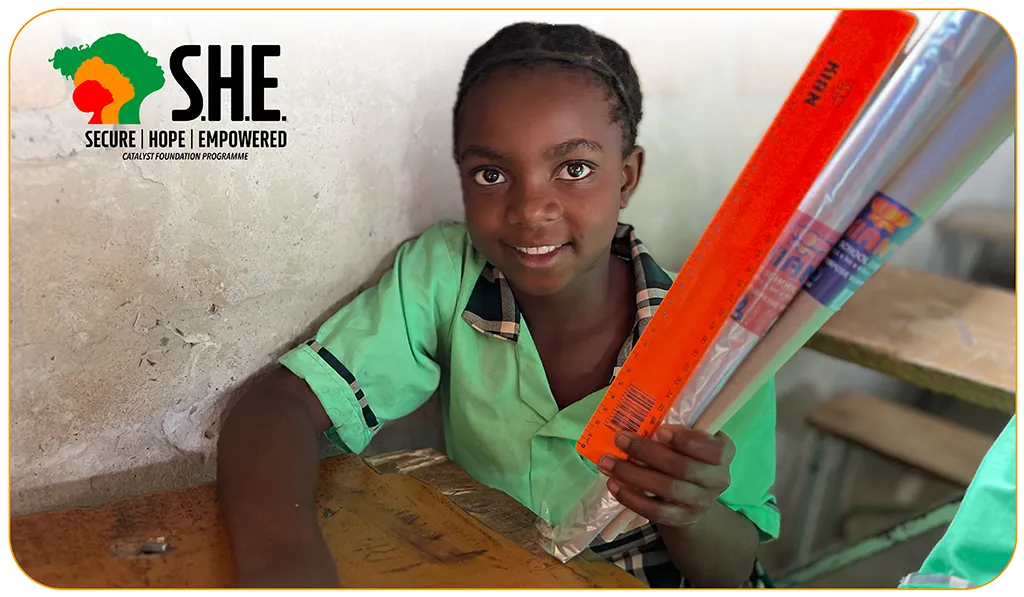Table of Contents
The Indispensable Role of Educators
In the grand architecture of society, few professions hold as much transformative power as teaching. Yet, across the globe, the vital contribution of teachers often remains profoundly undervalued. They are the unsung architects of the future, responsible for moulding not just academic ability, but character, citizenship, and global understanding. This responsibility is magnified exponentially in marginalised communities, where a dedicated teacher can be the sole beacon of hope, the only link to a life free from generational poverty.
With World Teachers’ Day approaching on 5 October, we must pause to acknowledge, celebrate, and actively support these professionals. Their influence is not merely instructional; it is existential.
Below are the five most compelling reasons why teachers are, without question, crucial, especially to us at Catalyst Foundation.
They are the Catalysts for Intergenerational Change
The most profound impact a teacher has is their ability to break the chains of poverty and limited opportunity. For any child, particularly a girl in a rural or marginalised community, a teacher does not just impart knowledge; they provide a way forward to the future.
In general, a strong education system produces skilled workers who drive economic growth. However, in communities facing deep socioeconomic hurdles, teachers represent the crucial link to escape. They empower students to secure better-paying jobs, which in turn leads to improved housing, better healthcare, and, critically, higher educational attainment for their own children. This virtuous cycle of prosperity begins with a teacher’s commitment in the classroom.
For girls we support through the S.H.E. programme in Zimbabwe and Zambia, the teacher is often the only consistent adult role model outside the family unit. They challenge the harmful cultural norms that prioritise early marriage over education, providing the girl with the knowledge, confidence, and secure hope to claim her full rights.
They Cultivate Critical Thinking, Not Just Rote Learning
The modern world is defined by complexity, misinformation, and rapid technological change. The essential skill for navigating this landscape is critical thinking, and this is explicitly fostered by outstanding teachers.
A truly effective educator does not simply dictate facts; they teach students how to think, how to question, and how to analyse information. They transform a classroom into a laboratory of ideas, encouraging healthy scepticism and robust debate.
This skill is particularly paramount in communities vulnerable to exploitation and misinformation. Teachers equip marginalised students with the intellectual tools necessary to identify injustice, understand their civil rights, and make informed life choices regarding health, finance, and political engagement. In the context of the S.H.E. programme, this means a girl is empowered to critically evaluate her options and make a conscious, informed decision to stay in school, delaying early motherhood and ensuring her safety and empowerment.
They are the Frontline Mental Health and Welfare Officers
Beyond the curriculum, teachers serve a critical, yet often unrecognised, welfare function. For hours each day, they are the primary observers of a child’s well-being. They are often the first to notice signs of neglect, hunger, or mental distress. In a functioning school environment, teachers are trained to recognise these indicators and connect students with necessary support services.
In marginalised communities, where formal social support infrastructure is often non-existent, this role is life-saving. The trust established between a S.H.E. beneficiary and her teacher/matron can create a safe space where the beneficiary feels comfortable disclosing violence, abuse, or serious barriers to attendance, such as period poverty or severe food insecurity.
The teachers, in partnership with us, actively support our S.H.E. mission by acting as the early warning system. Their input ensures that holistic support is provided.
They are the Keepers of Culture and Community Identity
A national education system is the custodian of a nation’s history, values, and cultural identity. Teachers are the medium through which this heritage is passed on. They foster a sense of belonging and civic responsibility, translating abstract concepts of democracy and citizenship into tangible, local action.
In culturally rich yet economically struggling regions, teachers connect the academic curriculum to local knowledge and relevance. They validate the students’ background while simultaneously opening their eyes to the broader world. By promoting local languages, history, and customs alongside universal knowledge, they ensure students grow into well-rounded individuals who are proud of their roots and equipped for a globalised world. This balanced approach is vital for achieving sustainable empowerment.
They are the Ultimate Role Models for Aspiration
For countless children, teachers represent the pinnacle of accessible achievement. They demonstrate the value of hard work, discipline, and intellectual curiosity. Seeing a successful, educated individual from their own community working as a teacher can profoundly shape a child’s aspirations, proving that high achievement is possible for them, too.
In the challenging contexts faced by S.H.E. beneficiaries, the female teachers, in particular, become a powerful symbol of empowerment. They are living proof that women can be educated, economically independent, and leaders in their communities. This visible evidence of success instils the hope necessary to persevere through difficult circumstances. It converts a theoretical possibility into a genuine, actionable goal.
Celebrating World Teachers’ Day (5 October)
World Teachers’ Day, established by UNESCO, is an annual opportunity to honour the critical role educators play worldwide. It is a day to reflect on the progress made and to address the challenges facing the profession.
Practical Ways to Thank a Teacher
- A Personalised Note: A handwritten letter or card detailing a specific impact the teacher had on your life or your child’s learning is often the most cherished form of gratitude.
- Support School Resources: Fundraise for essential classroom supplies, books, or technology. Practical support directly addresses some of the daily challenges teachers face, particularly in under-resourced schools.
Advocate for the Profession: Use your social media platforms to advocate for better pay, working conditions, and professional development for teachers in your local and global communities.
Partner with Catalyst Foundation: Secure Their Future
The work of a teacher is impossible without resources and support. Our S.H.E. programme works in direct partnership with dedicated teachers to ensure vulnerable girls in Zimbabwe and Zambia can not only attend school but thrive.
Your partnership helps us provide the wraparound care that complements the teacher’s tireless work: covering tuition, school supplies, uniforms, and monthly grocery hampers. This holistic approach removes the external barriers that would otherwise force a girl to drop out, allowing the teacher’s investment to yield its full, transformative return.
Join the movement to secure, hope, and empower.
Call to Action: Become an Individual Sponsor Today
By becoming an individual sponsor, you directly invest in a girl’s education and support the local teachers who guide her.
- Invest in a Life: Your monthly contribution ensures a S.H.E. girl remains in school and receives all essential resources.
- Witness the Impact: Receive personalised updates and establish a meaningful connection with the beneficiary you support.



